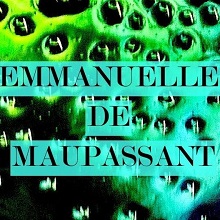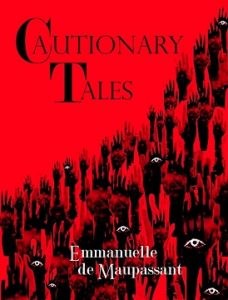Women Writing the Erotic: Sexual Themes in Fiction
 Love, yearning, loss, truth and deceit, freedom and constraint: these themes have long occupied a place in our literary canon. From classical literature, we’re familiar with the torment between Cathy and Heathcliff, and between Jane and Rochester.
Love, yearning, loss, truth and deceit, freedom and constraint: these themes have long occupied a place in our literary canon. From classical literature, we’re familiar with the torment between Cathy and Heathcliff, and between Jane and Rochester.
Within the subtext of these two classic stories of love, lies a narration of sex and sexual desire, necessary, though invisible, beneath the unfolding of more sanctioned themes.
More recently, we have the works of Jean Rhys and Angela Carter, of Jeanette Winterson, Sarah Waters and Fay Weldon, weaving sexual desire within their central narrative.
Yet, it appears that we still have some way to go before sexuality gains recognition as a valid theme for literary exploration.
As authors, we reveal the best and worst of our humanity. We write about violence, jealousy, grief, revenge and despair. Why then, does the exploration of sexuality give us pause?
Rather than deriding fiction with focused erotic content as being ‘limiting’, we can argue that this very element allows us to reach deeper into our characters.
Erotic fiction invites us to explore all the ‘what ifs’ of fantasy, but also the realities of the world we’re living in here and now. What it means to be free, and the myriad ways in which we’re pinned and dissected by society, subdued and subjugated.
Last year, I interviewed almost a hundred contemporary women writers on this subject, asking what compels them to tackle sexual themes.
 French feminist Helene Cixous declared, in her ‘Laugh of the Medusa’ (1971): ‘Write yourself. Your body must be heard.’ Author and editor Adrea Kore emphasizes, “I think this applies to all women’s stories, but particularly those around sexuality. The political aspect of it, the desire to confront and subvert, is a strong motivation for me – as strong as the desire to seduce and arouse.”
French feminist Helene Cixous declared, in her ‘Laugh of the Medusa’ (1971): ‘Write yourself. Your body must be heard.’ Author and editor Adrea Kore emphasizes, “I think this applies to all women’s stories, but particularly those around sexuality. The political aspect of it, the desire to confront and subvert, is a strong motivation for me – as strong as the desire to seduce and arouse.”
Adrea asserts erotic fiction’s ability to ‘write into areas of the human sexual psyche and behaviour that some genres gloss over or shy away from, bringing into the light contradictions between our inner sexual desires and our outward behaviour. What do we secretly long for, and to attain that, what lengths would we go to?’
There’s no doubt that erotic tales lend themselves to exploration of the ‘grey areas of morality’, as Tobsha Learner calls them: the small lies we tell ourselves, and the ways in which we manipulate others.
Remittance Girl comments, “Erotica can be breathtakingly beautiful because it’s about us at our most naked, our most vulnerable. It’s an exposure of both our passions and our hideous flaws. Our destructive jealousy, our brittle pride, our hunger for what doesn’t belong to us, our need for the strange and the transgressive.”
Meanwhile, Malin James tells us, “I like digging beneath a constructed, social surface to get at an emotional reality.”
Like Anaïs Nin, we can use our writing to bear witness to our sexual agency, to our desire to be more than a recipient. Moreover, to demonstrate that our sexuality is woven through our identity: ‘…the passivity of the woman’s role weighs on me, suffocates me. Rather than wait for his pleasure, I would like to take it, to run wild…’ – from Henry and June: “A Journal of Love” – The Unexpurgated Diary of Anaïs Nin
There is power in writing, in knowing the influence of our voice. Author and editor Rose Caraway, speaking of her work in audio narration of erotic fiction, underlines, “Those words want to be heard, making us stronger, so that we can better express and own our sexuality.”
Tabitha Rayne asserts that writing erotic fiction feels like ‘opening a door to myself’, while Adrea Kore notes her fascination with stories ‘of growth, transformation and dislocation’, saying, “These were the things that I began to write about: Love and longing… carving out narratives of sexual trauma. Death. Then, the sensual pleasures. Sex. Light, dark, light, dark… writing has helped me embrace the totality in the supposed contradictions.” (more from Adrea here)
We’re familiar with the passionate lyricism of Anaïs Nin but many of our modern day writers are just as worthy of accolade.
In ‘The Listening Room’, from her ‘Quiver’ anthology, Tobsha Learner relates: ‘…bone on bone, flesh on flesh and we are animal again… Get inside me, under my skin, under my pumping heart.’
Adrea Kore writes, in ‘Chords of Desire’: ‘…there is a compulsion to enquire into the harmonies possible between the softness in the crook of an elbow and the tautness of a nipple, between the pulse at the base of the neck and the pulse deep inside the mouth of the sex. All are notes on an infinite scale of ecstasy.’
In ‘Motion Capture’, Malin James describes: ‘…the veins in his neck, the strain of his jaw, the throb and pulse of who he is now, and now, and now.’
Our sexuality is multi-layered, and the ways in which we express our desire are just as complex. We are fluid. We are changeable.
We, as women writers, have the potential to present the many facets of desire. Our challenge is to do so without shame, or coyness. We can provoke awareness of what discomforts us, as well as what arouses and delights.
The many electrifying, intelligent, and provoking women writers surrounding me, and inspiring my own writing, are more than ready to be heard.
To read more from Emmanuelle’s survey of over a hundred authors of erotic fiction, visit www.emmanuelledemaupassant.com
—
Emmanuelle de Maupassant is an author of erotic short fiction. Among her most recent publications are ‘Highland Pursuits’ – a comedy of manners set in the 1920s – and ‘Cautionary Tales’, inspired by Slavonic folklore.
Find her on Amazon
Facebook: https://www.facebook.com/EMaupassant
Twitter: https://twitter.com/EmmanuelledeM
Category: On Writing
























